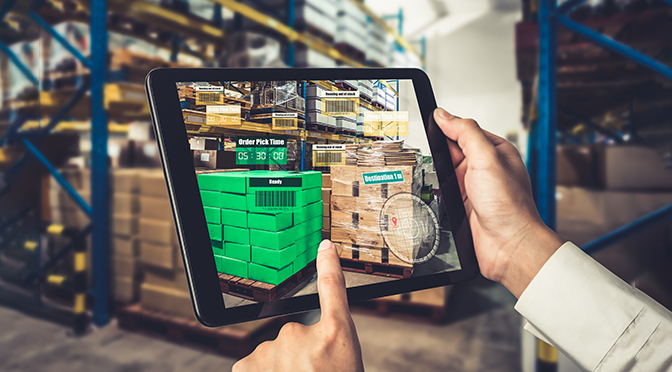Riding The Cloud – The Future Of Transportation Management System
Get In Touch
Your information is protected by our Privacy Policy and Terms of Use.
Our Offices
E 237, First Floor, Phase VIII B Sector-74,
Industrial Area, Mohali-160071, Punjab
Phone: +(91) 93010-10197
6470 East Johns Crossing, Suite 160
Johns Creek, GA 30097
Phone: +1(470)-268-9868
531A, Upper Cross Street, #04-95,
Hong Lim Complex, Singapore - 051531
Phone: +1(470)-268-9868
- Solutions For
- Solutions
- Services & Expertise
- Case Studies
- Insights
-
Get In Touch
Get In Touch
Your information is protected by our Privacy Policy and Terms of Use.
Our Offices
Zapbuild Technologies Private LimitedIndia
E 237, First Floor, Phase VIII B Sector-74,
Industrial Area, Mohali-160071, Punjab
Phone: +(91) 93010-10197Zapbuild Technologies (US) LLC United States
United States
6470 East Johns Crossing, Suite 160
Johns Creek, GA 30097
Phone: +1(470)-268-9868Zapbuild Technologies (S) PTE LTDSingapore
531A, Upper Cross Street, #04-95,
Hong Lim Complex, Singapore - 051531
Phone: +1(470)-268-9868
- Learning Management System
- Command and Control Center
- Transportation Management
- Warehouse Management
- Fleet Management
- Supply Chain Management
- Document Contracts Management
- Load Board Platform
- Route Optimization
- Electronic Proof Of Delivery
- Freight Exchange Platforms
- Customer Relationship Management
- Data Analytics and Business Intelligence
- Logistics Aggregator
- Crowdshipping Marketplaces
- Reverse Logistics Marketplace
From Bricks to Clicks: Transforming Traditional Logistics for the Digital Age

If you work in the logistics sector, you have probably seen businesses soar to amazing heights in record time—almost as if they had found the key to success.
It has less to do with being wealthy or possessing secrets than it does with modernizing old-fashioned logistics.
The supply chain and transportation industries have seen a broad acceptance of contemporary techniques and technology within the last ten years.
The way that businesses manage and run their logistics frameworks has been completely transformed by the increasing use of cutting-edge technology in logistics.
31% of shipping and logistics organizations are thinking about or assessing a digital transformation strategy, whereas 67% of them have a concrete plan in place to digitize their business operations.
Businesses can improve supply chain capabilities, boost visibility, improve transparency, decrease mistakes, obtain real-time data, and optimize inventory management by using digital logistics solutions.
Customers’ needs and expectations are always shifting in the dynamic market of today. This leads to inefficiencies and missed opportunities since conventional logistics strategies often struggle to keep up with these developments.
To maintain an advantage over your competitors, you must thus include digital technologies in your logistical processes.
You can stay competitive and responsive by quickly adapting to changing market trends and client demands by utilizing modern logistics solutions. Furthermore, in an increasingly digital environment, it enables you to better anticipate and satisfy customer expectations, cultivating loyalty and propelling revenue.
Are you prepared to use cutting-edge technology to revolutionize your current logistics? In this insight, we will examine how digital technology is changing the logistics sector and offer practical advice for putting these ideas into practice.
What is Digital Logistics?
Digital logistics is the process of using cutting-edge technologies and techniques to automate various activities related to the movement of goods.
This digital transformation leverages several advanced logistics solutions to harness the full power of supply chain management. This includes artificial intelligence (AI), machine learning (ML), big data analytics, IoT, and cloud-based technologies.
Besides, digital logistics can influence every aspect of a business’s supply chain, including:
- Transportation Management
- Vehicle Tracking & Fleet Management
- Warehouse Management
- Supply Chain Forecasting and Analytics
- Document & Contracts Management
- Vendor Management
- Real-time Shipment Tracking
The Problem with Traditional Logistics
Traditionally, companies used old-school methods and tools like spreadsheets, clipboards and pen-and-paper checklists to complete their day-to-day logistics tasks. These old-school logistic methods face several challenges, including:
- Inefficient processes
- Lack of real-time data
- Limited visibility
- Shipment tracking complexities
- Difficulty in migration to cloud services
- Slow response times
These issues result in higher costs, reduced flexibility, and difficulty in maintaining product quality and safety. Additionally, traditional methods struggle with siloed data and are less agile in adapting to market changes.
Those are the reasons you need to invest in the digitalization of logistics as it helps you overcome the most pressing issues in the current landscape.
Why Does Your Logistics Business Need Digital Transformation?
Future-proofing your business with a digital transformation strategy can help increase market share by 25-30%.
Today, every logistics company is investing in modern logistics solutions to take their business to the next level.
The global digital logistics market was valued at USD 28.13 billion in 2023 and is expected to grow to USD 120.33 billion by 2032, with a CAGR of 17.8% from 2024 to 2032.
Here’s how advanced logistics solutions can transform the above challenges into opportunities.
Increasing Operational Efficiency
Logistics undergoes a digital revolution that increases operational efficiency by using cloud-based tools to streamline procedures. Data input and other manual duties are no longer necessary thanks to this technology, which centralizes tracking and recording.
This allows you to reallocate resources, which raises output and lowers expenses more efficiently. Less tiresome labor allows employees to concentrate on more important responsibilities, like customer service, which boosts morale and reduces attrition.
All things considered, digitizing logistics procedures improves worker happiness and maximizes resource utilization while guaranteeing constant performance and quality.
Enhancing Supply Chain Transparency
Supply chain transparency is improved by advanced logistics technologies, which give real-time access to data that was previously days to collect.
This immediate availability lowers the possibility of mistakes associated with manual data gathering and streamlines the study of the performance of your supply chain.
Process digitization leads to faster and more accurate data collection, which produces more trustworthy insights. These upgrades enable improved decision-making and greater knowledge of your operations by making the supply chain more transparent and easy to investigate.
Increasing Logistics Supply Visibility
Digital transformation boosts logistics supply visibility by integrating data from various sources into a single, unified system. This approach consolidates information from ERPs, spreadsheets, and other methods, providing a comprehensive view of goods throughout the supply chain.
Enhanced visibility through GPS tracking and vehicle autonomy also improves transparency and builds client trust. Digital tools make it easier to track freight movements, analyze data, and respond swiftly, leading to a more informed and efficient supply chain strategy.
Tracking Shipments in Real-Time
Imagine being able to track your shipments with pinpoint accuracy and real-time updates—this is the power of logistics digital transformation. By integrating technologies like GPS and RFID, businesses can monitor cargo continuously and instantly.
These tools provide precise, instant updates on the location and condition of cargo. With digital platforms and mobile apps, customers can monitor their shipments continuously, improving visibility and reducing uncertainty.
This real-time tracking boosts transparency, allowing businesses to address issues promptly and keep all parties informed. As a result, trust and satisfaction increase, strengthening relationships and enhancing brand reputation.
Optimizing Route with GPS Tracking
Transportation companies aim to reduce expenses and periods of travel. Efficient route planning reduces delays, guarantees on-time delivery, and increases fleet efficiency. Through the integration of GPS monitoring and route optimization, organizations may transform their delivery processes.
Accurate geocoding and real-time traffic data are combined with sophisticated software to find the fastest and most cost-effective routes. GPS tracking ensures accurate vehicle tracking, allowing for timely rerouting in the event of traffic jams or other obstacles.
This reduces travel time and fuel costs while also boosting productivity and elevating customer satisfaction by ensuring on-time delivery.
Improving Decision Making
Struggling with data overload? The logistics industry can use digital transformation to transform the deluge of data into useful insights! Purchasing AI-powered tools and sophisticated analytics becomes essential as data quantities rise.
These clever technologies sort through enormous information to offer significant insights that are easy to understand and aid in the decision-making process for enterprises.
Logistics firms may improve client experiences, increase cost efficiency, and streamline procedures by utilizing AI.
How Can Zapbuild Help You with Digitally Transforming Your Logistics Business?
Looking to revolutionize your logistics business?
Zapbuild can be your guide to navigating digital transformation. Our speciality is developing unique digital solutions that seamlessly integrate with your present company procedures.
We provide cutting-edge technology that enhances process resilience and efficiency for a range of applications, including fleet management, transportation management, warehouse management, supply chain management, route optimization, CRM, document management, and data analytics.
Our experience includes working with well-known international brands to create unique learning management system (LMS) programs for transportation companies.
By partnering with Zapbuild, you may streamline your supply chain, eliminate obstacles in digital transformation, and promote long-term success. Allow us to transform your logistical obstacles into chances for creativity and superior performance.
Get in touch now.
FAQs
What advantages does digitization provide the logistics industry?
Digitalization in logistics boosts output, reduces costs, and enhances customer experience by automating processes and offering real-time data for improved decision-making.
How can supply chain management logistics be enhanced using technology?
Technology aids logistics by reducing delays and increasing overall efficiency by automating inventory management, enabling real-time tracking, and optimizing routes.
Which digital technologies are employed in logistics?
Digital technology in logistics includes robotic process automation (RPA), Internet of Things (IoT) sensors, artificial intelligence (AI) for route optimization, GPS monitoring, and big data analytics for more effective and efficient decision-making.

Looking to build future-ready technology solutions for your transportation or logistics business? Connect with our experts for a free consultation today connect@zapbuild.com
Categories
Trending


5 Ways AI is Revolutionizing Supply Chain Management

What is a Fleet Management System?
Subscribe to our newsletter
Related Insights

Logistics
From Paper Trails to Real-Time Insights: How Data-Driven Logistics is Transforming the Industry

Logistics
Predictive Intelligence for Optimized Logistics: From Reactive to Proactive Decision-Making

Logistics
5 Key Reasons You Should Invest in a Logistics Management System

Logistics
Logistics Management Software : Important Things You Should Know
Connect with Our Experts
Take the first step toward the digital transformation of your Transportation and Logistics business.
Get a Free Consultation with Zapbuild’s technology experts today.